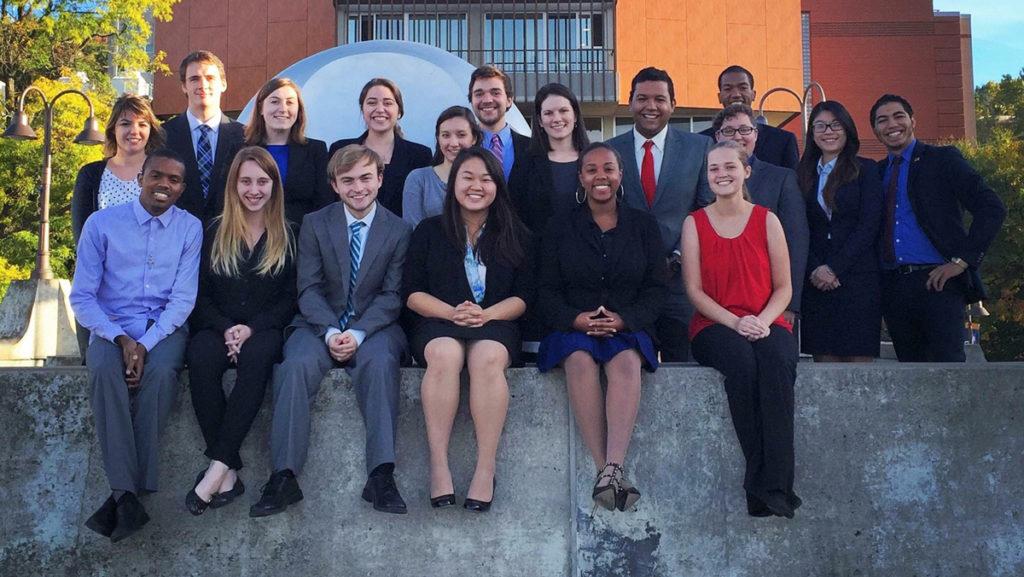Ithaca College’s mock trial teams competed in a mock attempted murder case for a regional tournament at Pennsylvania State University Feb. 2–4.
The college’s mock trial teams did not make it to the second round of mock trial competitions, ending their season at the regional tournament.
The case involved the defendant being accused of strangling the complaining witness with an extension cord because the defendant was having an affair with the witness’s spouse. While the complaining witness claimed to identify the defendant, the witness was high the night of the attack and could not give a clear description, sophomore Luke Miller said.
Had either team ranked in one of the top seven places in the regional tournament, the team would have moved on to the Opening Round Championship, sophomore Alicia Armstrong said. The top six teams from the Opening Round Championship move on to the national competition. The team has not been to nationals since the 2011–12 academic year, according to the Ithaca College mock trial website.
Miller said he is satisfied with his team’s performance and thinks the team will be even stronger next year.
“I was impressed with what everyone was able to do, especially the freshmen,” Miller said. “Working with the first-year students all year allowed me to see just how far they have all come, and I’m really excited for next year.”
Armstrong said she thinks the team gained a lot of experience at the tournament that will improve their skills for next year.
“This year’s tournament was a lot of fun, and as a team, we made some great memories,” Armstrong said. “We will truly miss the seniors that are graduating, but we have a lot of potential with the newer members of the team.”
The teams have been working on this year’s case, a murder trial, since August 2001, Veronica Fox, mock trial adviser, said. Each team is given one full case with 10 statements from witnesses and other evidence that the teams analyze to prepare for trial, Miller said. The team is split into two groups: A–team and B–team, to scrimmage with each other before the tournament, Armstrong said.
Although the team will not be moving onto the second round, Armstrong said the teams learned a lot through their experience.
Fox said the goal of the club is to bring students of different majors together to improve their public speaking and quick-thinking skills. Students in the club prepare a trial each year that replicates a scenario legal studies majors, and future graduate law students, might encounter in their future careers. Additionally, she said students build up their confidence through the mock trials because each member of the team is assigned an individual role for the case.
“It’s a really great way for students, especially freshmen, as well as any kind of student, to get involved and find their place,” Fox said. “Mock trial isn’t for everyone, but those students who find it interesting really find a home in mock trial.”
The skills learned in mock trial are applicable to the legal studies major, which is why Miller said he joined the club.
“I did it to get the edge in the classroom as well as have that bonding experience,” Miller said.
Kelsey Shaffer, a sophomore legal studies major, said she played the role of the witness for the B–team. A witness must memorize their affidavit, a written statement confirmed by oath or affirmation that is used as evidence in court, for their case, she said.
“It’s almost like a theater performance, but in a trial way,” Shaffer said. “You put on that show and memorize your case.”
The performance aspect of mock trial draws some students that are interested in theater performance, singing and acting, Fox said.
Armstrong said she said took on two roles, the role of a witness and an attorney, for the tournament, which was a lot of work. She said the team helped her manage both roles.
“I’m very close with the people on the team,” Armstrong said. “They help me through it. We’re very supportive of each other.”








